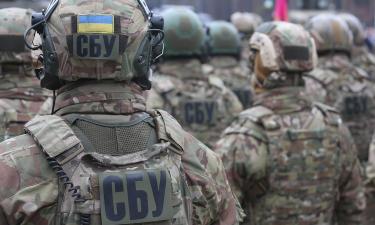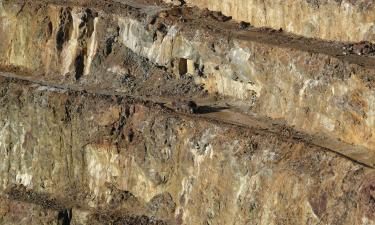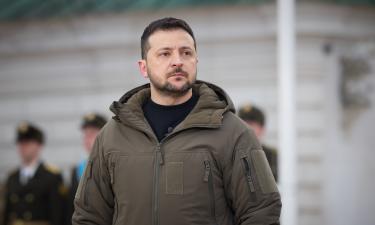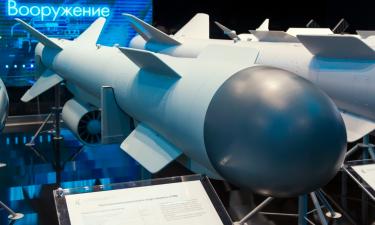It's Easier To Create Chemical Weapons Than To Destroy Them
 On September 4 the Pentagon admitted that it won't be able to destroy US chemical arsenals on time (in line with international commitments). In this connection, the United States wants to contact the Organization for the Prohibition of Chemical Weapons (OPCW) in the Hague and to request that specific CW-elimination deadlines be postponed by at least five years.
On September 4 the Pentagon admitted that it won't be able to destroy US chemical arsenals on time (in line with international commitments). In this connection, the United States wants to contact the Organization for the Prohibition of Chemical Weapons (OPCW) in the Hague and to request that specific CW-elimination deadlines be postponed by at least five years.
The convention on banning the development, production, stockpiling and use of chemical weapons, which also stipulates their complete destruction, provides for this opportunity. This document was signed by 174 countries of the world, entering into force April 29, 1997. All countries, which had announced the existence of CW arsenals, i.e. the United States, Russia, India and South Korea, were to have destroyed one percent of such arsenals three years later, destroying 20 percent four years after and completely eliminating all CW stocks by April 29, 2007.
Russia, which had stockpiled 40,000 tons of chemical weapons, was unable to meet these deadlines because its inadequate material-technical base could not effectively destroy such weapons; moreover, any full-fledged financial appropriations were lacking. Russia needed at least $8-10 billion; meanwhile annual federal appropriations (for this purpose) totalled not more than 500 million roubles. The Government of Russia notified the OPCW in the Hague 180 days before the reporting deadline (in accordance with convention provisions), also citing some rather weighty arguments, which explained the Russian side's inability to abide by its commitments. Consequently, Moscow was allowed to delay the CW-elimination process on two occasions. Russia informed the Hague about the destruction of one percent of all CW arsenals (400 tons) only this past April.
However, the US situation is much more favorable. The United States, which officially has 31,279 tons of chemical weapons, also boasts the required material-technical base for destroying such weapons, as well as enough money for this purpose. The Pentagon estimates that its experts needed $24 billion in order to accomplish this objective. This sum total exceeded previous federal-budget appropriations by an impressive $9 billion; nonetheless, the Congress used to set aside over $120 million for the US Army's CW-elimination programs each year, increasing this sum total by another $40 million after the September 11, 2001 tragedy. Consequently, Washington managed to destroy almost 25 percent of its CW arsenals by late 2001.
The United States, which has mastered an environmentally-friendly CW-destruction process a long time ago, doesn't have to incinerate its chemical weapons. This CW-detoxification process is already being used by Russia at its Gorny factory for recycling lewisite and mustard gas in the Saratov region. Plans are in place to introduce a similar process at the Shchuchye facility in the Kurgan region; consequently, it will become possible to effectively dispose of sarin, soman and VX gases there. Washington had furnished Moscow with $25 million back in the early 1990s for the purpose of developing this process; the US side eventually did its best to assess the efficiency of the afore-said process.
This CW-disposal method was developed by Moscow's GOSNIIOKHT state-run R&D institute of organic chemistry and technologies, what with US scientists checking it at a well-known Maryland center, which developed virtually all US chemical weapons. Moreover, it was checked at Russia's Saratov higher military NBC (Nuclear, Bacteriological and Chemical) protection school and rated absolutely safe. That's why the US Administration agreed to help Russia destroy its CW arsenals in accordance with the Nunn-Lugar cooperative-threat reduction program. Nonetheless, the US side declined to buy Russian know-how.
Russia continues to receive assistance (in line with the Nunn-Lugar CW-disposal program) by fits and starts, thus failing to ensure the timely fulfilment of its commitments stemming from the convention's second stage. Meanwhile the US side has also been forced to admit that it's unable to do this on time.
Moscow doesn't gloat over the Pentagon's statement; nor does it have any time-serving political considerations in this connection. Experts from the national Munitions Agency, which is solely responsible for destroying all chemical weapons, are saying that it's much harder to destroy this poisonous stuff than to create it. Summing up, it takes a lot of time, money and effort to say goodbye to the Cold War era.
Victor LITOVKIN, RIAN
Subscribe to Pravda.Ru Telegram channel, Facebook, RSS!





